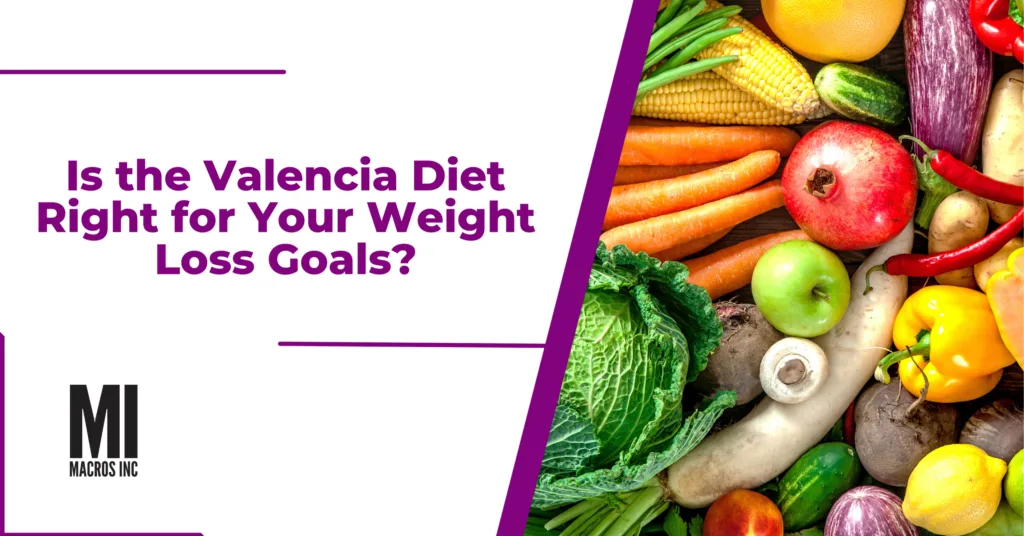One universal thing holds very true for dieting – there is no one right approach.
Over time, there have been countless different diets proposed for health and weight loss benefits. Some of the practices touted today are surprisingly old. For example, the ketogenic diet originated in the 1920s, while intermittent fasting first began to be studied seriously in the 1960s. By contrast, other approaches are much more contemporary, from the 21st century. The modern paleo diet is linked to a 2002 book, and the South Beach Diet to a 2003 one.
However, another trend is to put more modern spins on classical approaches. These altered diets are modified versions of pre-established fundamentals, with varying reasonings and results. Some of these amount to little more than a rebranding, while others can add some perks or round out a previous diet. Here, we’ll be taking a look at a modern spin on Ancel Keys’ 1975 Mediterranean diet – the Valencia diet.
Jump to a Topic
Is the Valencia Diet Right for Your Weight Loss Goals?
What is the Valencia Diet?
The Valencia diet was created in 2024 by Dr. Daniel Valencia-Lopez, and has grown in popularity largely due to its spread on social media. At its core, the diet is a close analog to the Mediterranean diet. As such, its fundamentals emphasize an intake of fruits, vegetables, whole grains, and minimally processed foods. However, the Valencia diet also two notable differences to a traditional Mediterranean diet.
The first key difference is in regards to protein intake. The Valencia diet emphasizes higher amounts of dietary protein, and sets the target around 1 gram per pound of bodyweight. There is also a greater emphasis on animal based protein compared to the Mediterranean diet, although both still gravitate significantly toward plant based sources.
The other big adjustment is that the Valencia diet implements a calorie target. Most of the recommendations hover around 1500 calories for each person. By contrast, the traditional Mediterranean diet tends to be more of an ad libitum approach, with no caloric goals set.
Is it Effective for Weight Loss?
On paper, the Valencia diet has a few things that immediately stick out as appealing. The Mediterranean diet already has very solid foundational principles for both weight loss and general health purposes, and those are mirrored with the Valencia approach as well. Whole grains, copious fruits and vegetables, minimally processed sources, etc. all tend to provide a rounded profile of vitamins and minerals, higher fiber, and increased satiety.
The Valencia diet further builds on this by placing an increased emphasis on protein. The protein sources themselves are more varied, with an increased presence of lean animal meat to complement the pre-existing plant based ones.
Additionally, high protein diets above the RDA of 0.8g/kg (0.36g/lb) confer additional benefits, and are a major asset for lean body mass retention, satiety, and weight loss. The Valencia diet’s recommendation of 1g/lb bodyweight is a bit broad of a brush stroke to use across everyone, but it serves as a fair enough target for most.
The main caveat here is that only lean body mass technically has a protein requirement, so individuals with higher levels of bodyfat may find the 1g/lb bodyweight goal to be a bit overkill. Still, given its benefits, I would prefer folks reasonably err on the side of too much protein than too little.
The 1500 calorie recommendation is an interesting one. The main problem with it is that 1500 calories is simply too arbitrary a target for most intents and purposes. In the context of weight loss, 1500 calories will usually be a sufficient deficit to get things going.
However, this is contingent on the size of the person, how active they are, how sustainable their eating habits are, etc. For a 150 pound person, 1500 calories may be right about the sweet spot for losing fat at a comfortable rate.
For someone 300 pounds, 1500 calories would be a dramatic reduction in food intake – it would indeed elicit fat loss, but the corresponding increase in hunger may not be feasible. Finally, someone sedentary at 120 pounds may very well need a calorie target below 1500 to make progress.
Wrap Up
The Valencia diet is a bit of a mixed bag, but overall I would contend its strengths outweigh the weaknesses. It builds from a dietary approach that already has solid founding principles. It adds a greater emphasis to dietary protein, which is a crucial element to most successful dietary approaches. I would recommend caution regarding its calorie recommendations, though, as they may be a bit too general to be universally applied.
Overall, it’s important to remember that there are three different criteria for any diet to be successful. The diet has to create a calorie deficit, it has to be sustainable long term, and it has to something you can adhere to. The Valencia diet may very well meet those points for you, or it may not. If you’re unsure, it’s never a bad idea to get some assistance from a nutritional coach to ensure your approach is best tailored for your individual needs. If you have financial concerns, you can always try us out for free. We’d love to help!
Try our nutrition coaching, for free!
Be the next success story. Over 30,000 have trusted Macros Inc to transform their health.
Simply fill out the form below to start your 14-day risk-free journey. Let's achieve your goals together!

